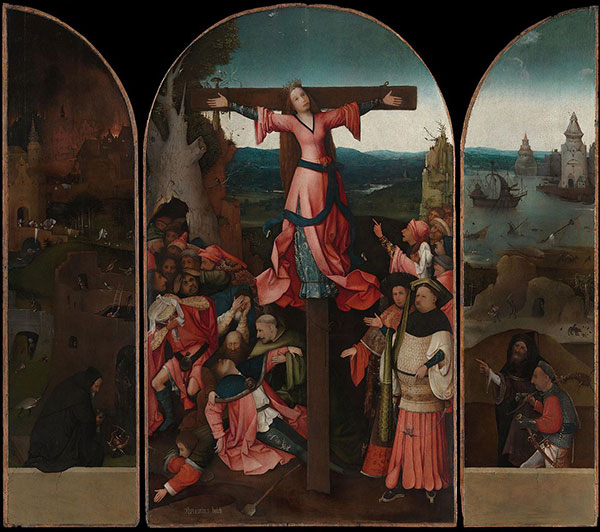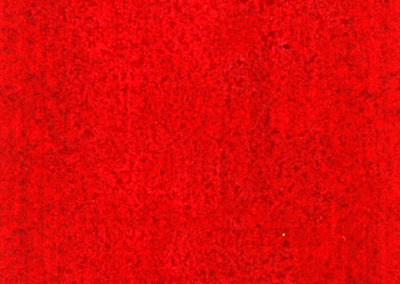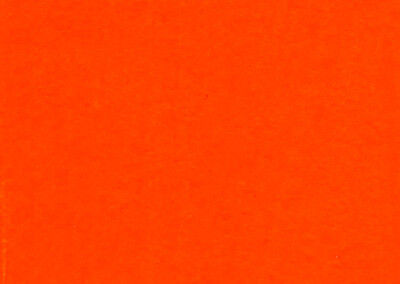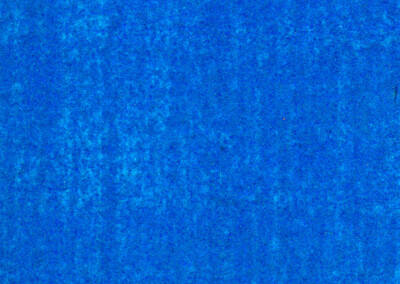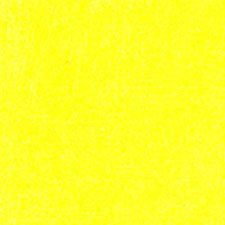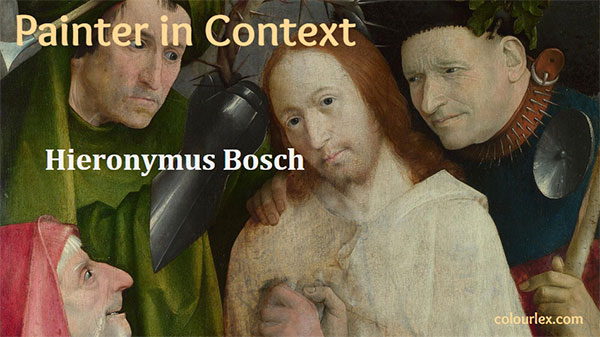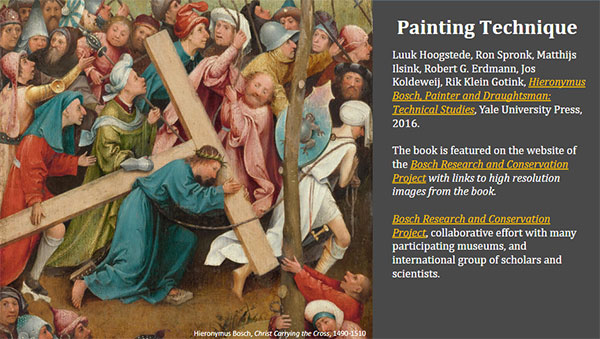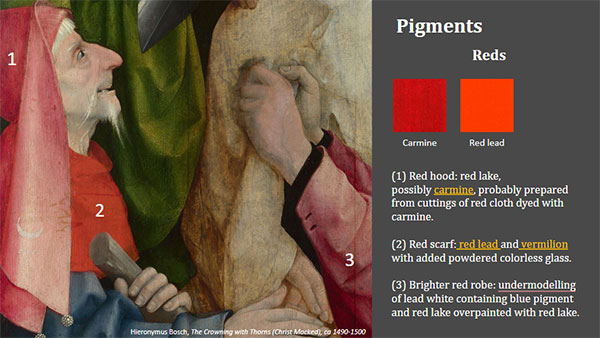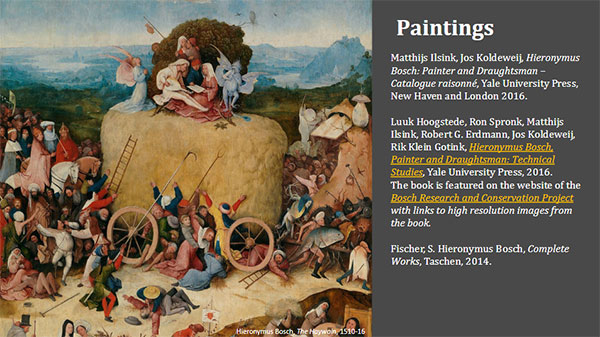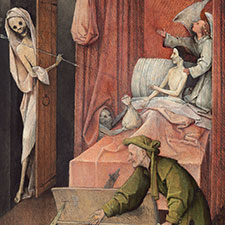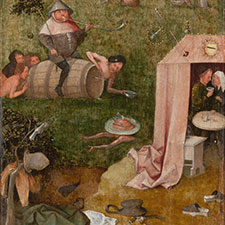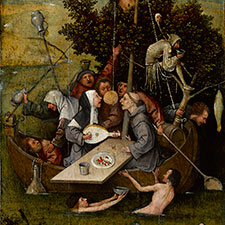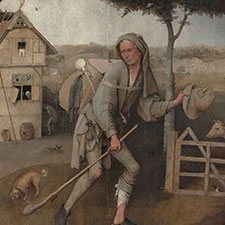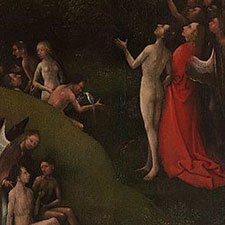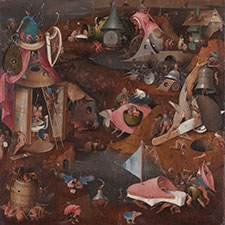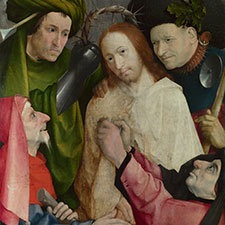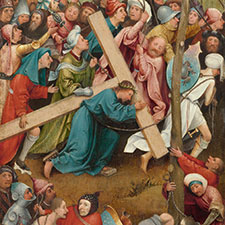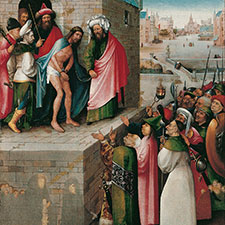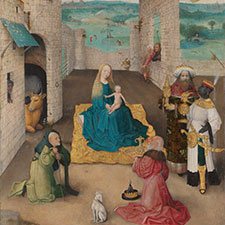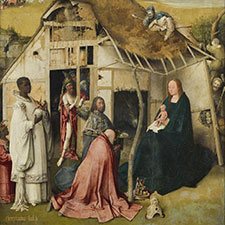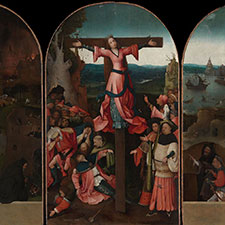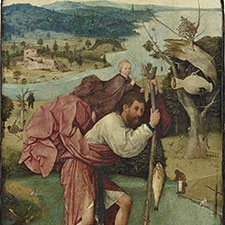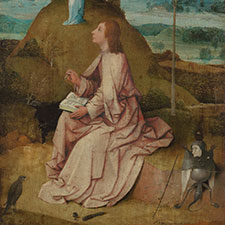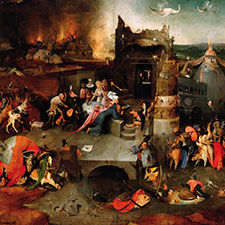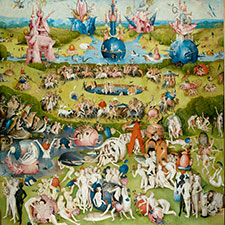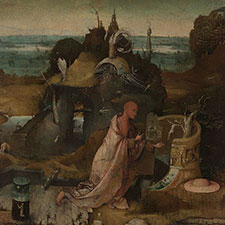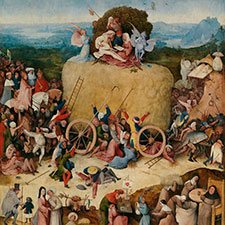Hieronymus Bosch, Saint Wilgefortis Triptych
ca 1495-1505Paintings sorted by Historical period | Painter | Subject matter | Pigments used
Overview
The Saint Wilgefortis Triptych, also known as ‘The Crucifixion of Saint Julia’ consists of the following three parts: the left panel depicting Saint Anthony in meditation, the central panel showing the crucifixion of Saint Wilgefordis also called Uncumber or Liberata and finally the right panel depicting a monk leading a soldier.
The triptych was thoroughly investigated by The Bosch Research and Conservation Project. The results of this investigation were published in a magnificent book referenced in the section “Recommended Books” below. An extensive interactive online feature at the website of the project complements the book and shows all the images from the book in high resolution.
The pigment analysis reveals a limited palette consisting of the usual pigments employed in the Renaissance period, such as azurite, lead-tin yellow, vermilion, carmine (cochineal or kermes), and red lead.
Medium: Oil
Support: Oak
Size: Central panel: 105.2 x 62.7, wings: 104.7 x 27.9 cm
Art period: Renaissance
Gallerie dell’Academia, Venice
Painting at Bosch Research and Conservation Project
Parts of the Triptych
Left Panel: ‘Saint Anthony in meditation’

Central Panel: ‘The Crucifixion of Saint Wilgefortis (also called Uncumber or Liberata)’
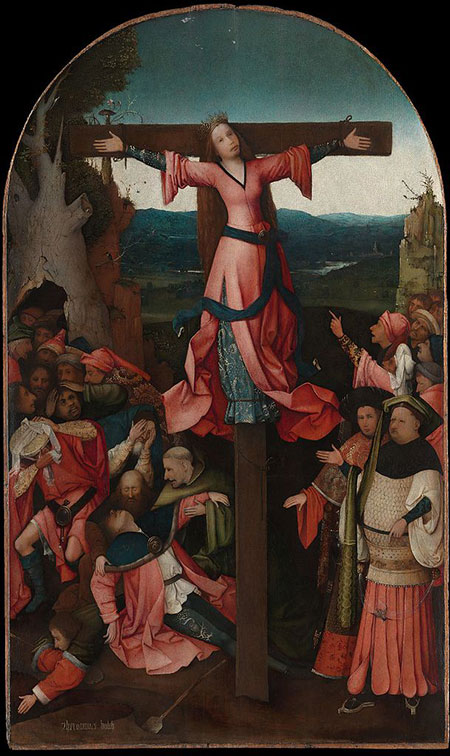
Right Panel: ‘A monk leading a soldier’

Pigments
Pigment Analysis
This pigment analysis is based on the work of the scientists at The Bosch Research and Conservation Project (1). The scientists employed X-ray radiography (XRR), infrared photography (IRP), and infrared reflectography (IRR) to gain insights into the inner layers of the painting and to identify the pigments.
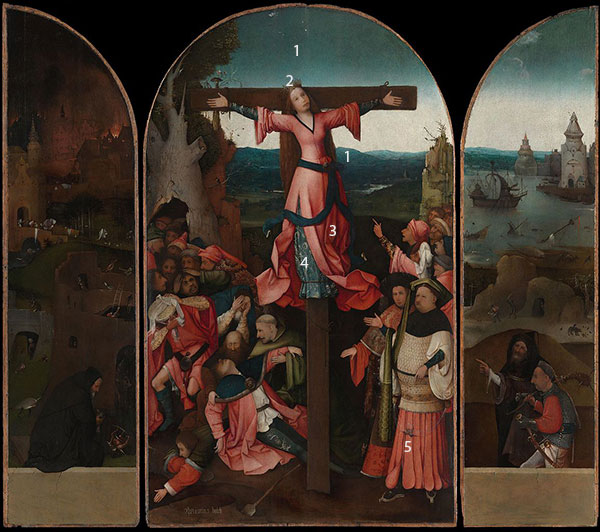
1 Blue sky and blue distant landscape: azurite and lead white in varying proportions.
2 Saint’s crown: lead-tin yellow.
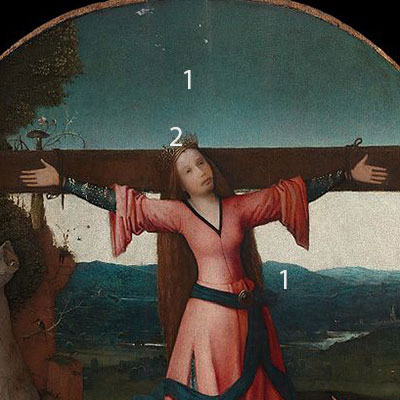
3 Saint’s red robe: vermilion.
4 Saint’s elaborate blue-green dress: copper-green glaze and lead-tin yellow.
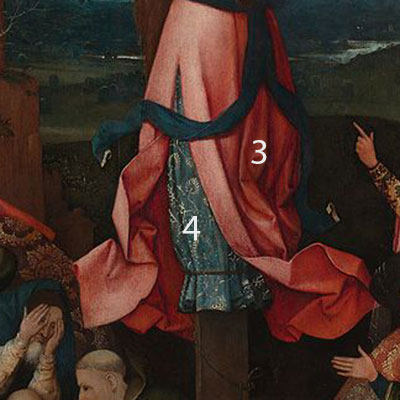
5 Red robe of the figure at the lower right: vermilion mixed with red lead and carmine (cochineal or kermes).
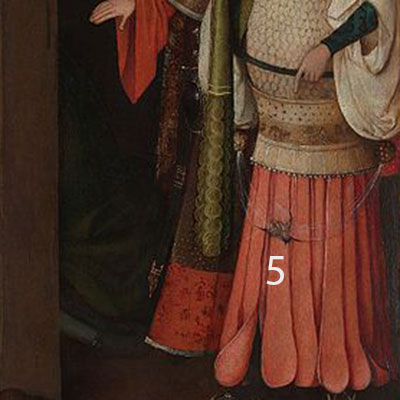
References
(1) Luuk Hoogstede, Ron Spronk, Matthijs Ilsink, Robert G. Erdmann, Jos Koldeweij, Rik Klein Gotink, Hieronymus Bosch, Painter and Draughtsman: Technical Studies, Yale University Press, 2016, pp. 138 – 153.
Pigments Used in This Painting
Resources
See the collection of online and offline resources such as books, articles, videos, and websites on Hieronymus Bosch in the section ‘Resources on Painters‘
PowerPoint Presentations
Painter in Context: Hieronymus Bosch
A richly illustrated presentation on the painting technique and pigments employed by Hieronymus Bosch specially crafted for Art Education. (Number of Slides = 20)
- Each presentation starts with the basic resources on the painter such as his biography, main catalogs of his paintings, and a bibliography.
- Next, you find slides describing the painting technique of the artist and the pigments he usually employed in his work.
- The majority of the slides show examples of paintings containing the specific pigments.
Slides showing the basic resources on the life and works of the Northern Renaissance painter Hieronymus Bosch.
The painting technique and all pigments employed by Bosch are shown in the next slides.
The majority of the slides show important examples of paintings where Bosch employed specific pigments. The slides are organized according to the color of the pigments.
Videos
Video: 'The Martyrdom of Saint Julia' by Nicolas Carras
Publications and Websites
Publications
(1) Matthijs Ilsink, Jos Koldeweij, Hieronymus Bosch: Painter and Draughtsman – Catalogue raisonné, Yale University Press, New Haven and London 2016, pp 187-197.
This book is also available online in pdf format in two parts: part I and part II.
(2) Luuk Hoogstede, Ron Spronk, Matthijs Ilsink, Robert G. Erdmann, Jos Koldeweij, Rik Klein Gotink, Hieronymus Bosch, Painter and Draughtsman: Technical Studies, Yale University Press, 2016, pp. 138 – 153.
(3) Leonard J. Slatkes, Hieronymus Bosch and Italy, The Art Bulletin, Vol. 57, No. 3 (Sep 1975), pp. 335-345.
(4) Ilse E. Friesen, The Female Crucifix: Images of St. Wilgefortis Since the Middle Ages, Wilfrid Laurier Univ. Press, 2006.
Websites
Website of the Bosch Project
Website of the Bosch Research and Conservation Project
Hieronymus Bosch, Hermit Saints Triptych, Website of The Bosch Research and Conservation Project. The painting can be viewed in a special viewer in high resolution with an interactive feature showing the image not only in visible light but also as infrared reflectogram and x-radiograph.

